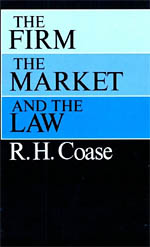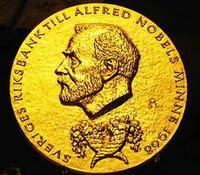Canadian economist Nick Rowe made a comment on a blog post on comparative advantage that bugged me:
The way I teach it, all gains from trade come either from differences between people, like comparative advantage, or else from economies of scale. So I think gains from trade is not more basic than comparative advantage. Gains from trade are a result of (or the same thing as) comparative advantage.
Now, Nick Rowe knows way more economics than I. He even teaches it, and teaching is a great way to learn. He is a great econblogger, specialising in mind-bending thought-experiments. But I conceive of comparative advantage as a counter-intuitive result of gains from trade based on differing opportunity costs in a situation where a similar range of production choices are possible.
What you want
My point is two fold. First, trade has to be motivated (including the prior production choices). Gains from trade come from preferences + capacities. If, by trading with you, I can gain something I value more in exchange for something I value less, and you prefer what I can offer you to what I want from you, then the trade happens. So, yes differences between are basic to the gains from trade, but the preferences are prior–the trade has to be motivated to happen. Including the previous production choices. Opportunity costs (plus preferences) explain the production choices leading to the situation where gains from trade are possible.
The difference is between Nick Rowe saying, look!, differences produce gains from trade and me saying look!, differences lead to getting gains from trade. It is somewhat similar to Marx saying look!, things produced by labour have value and me saying look!, people apply labour to get things of value. In both cases, the motivation comes first.
Nick Rowe’s way of looking at gains from trade is certainly thought-provoking, but I still want motivation to come first. We are talking about human action, after all (pun intended).
What you don’t have
Second, comparative advantage assumes we can produce the same goods, just at different opportunity costs. This is not how (long distance) trade originally started. Such trade originally began between people who produced quite different ranges of good–not because they chose to produce one and not the other, but because they could produce something other people could not.
Sure, comparative advantage operated from the beginning of human existence as foraging (i.e. hunter-gatherer) bands. Men hunted and women gathered. Gathering was compatible with looking after babies and small children, hunting used the generally superior upper body strength of men and put the reproductively more expendable gender more at risk. Given the operating constraints, while men could gather and women could hunt, men were more productive hunting and women more productive gathering. So, women gathered and men hunted–comparative advantage at work. (And those who fell in between? They provided cultural and other social cohesion services: also a form of comparative advantage.)
But long distance trade was, for millennia, dominated by trade for goods not able to be produced locally. The lower the level of technology, the more (long distance) trade was dominated by the products and distributions of nature. Even domesticable plants and animals took centuries (or even millennia) to spread. Farming, for example, spread across Europe at about the rate of a kilometre a year; taking millennia to spread from Anatolia to the Atlantic coast.
So, particular regions were noted for particular trade goods. You had to trade to get them, as local production was typically not an option.
There were choices in putting effort into tradable or non-tradable goods–opportunity cost at work. But comparative advantage in the we-can-produce-the-same-range-of-goods, just-at-different-opportunity-costs sense mostly did not operate.
Of course, in such a situation, there was little motive to come up with the theory of comparative advantage to explain trade. It was perfectly obvious why such trade occurred and what benefits were to be had. Since long distance travel was risky–so trade tended to be dominated by low weight-high value items (i.e. luxury goods)–moralists might rail against the desire for decadent foreign luxuries, and those who took a bullion-is-wealth view might rail against the loss of wealth for fripperies, but the underlying motivation for trade was perfectly obvious.
It was when countries could produce a similar range of goods, yet still traded within those goods, that further explanation was required. Hence David Ricardo coming up with the theory of comparative advantage.
Doing specifically
But comparative advantage does not explain the origins of (long distance) trade, however much it might help make sense of specialisation generally. Which it does rather nicely. For example, a lawyer may well be able to clean her office better than the hired cleaner (and can be presumed to be a much better lawyer than the cleaner), but it still makes sense to hire the cleaner than do the cleaning herself, given that she earns a lot more as a lawyer than as a cleaner and her labour-leisure trade-off is based on her earnings as a lawyer. Comparative advantage at work: gains from trade based on differing opportunity costs.
Much of the criticism of comparative advantage comes from the notion that nations are different–specialisation which makes sense within a nation has extra costs between nations. Hence the counter “what’s magical about national boundaries?” arguments. (If Australia should have tariffs, why not Victoria?, why not Melbourne? why not Balwyn?) Then we get into implicit (or occasionally explicit) arguments about countries as club goods and levels of coordination. With those who gain their income from scarce factors of production not liking the foreign competition and those who gain their income from plentiful factors of production wanting cheap access to (wider) foreign markets. (The world of the Stolper-Samuelson theorem and the Heckscher-Ohlin model as described in Ronald Rogowski’s famous Commerce and Coalitions [pdf] paper.) As we moved away from that world to one of economies of scale and intra-industry specialisation, it has been politically easier to get agreements on free trade.
Which gives me an opportunity to (again) strongly recommend reading (or even better watching; particularly for his comments on how to do social science research) Paul Krugman’s Nobel Memorial Prize speech, which is on precisely that world. The wider the possible production choices, the wider the ambit that explanatory trade theory has to have.
To put it another way, comparative advantage is a theory of specialisation. Its application to trade theory is to explain how there can be gains to specialisation between countries even when they are facing a similar range of production possibilities. The more we specialise, the more we have to rely on exchange: trade is always about specialisation, long distance trade just started with specialisation between people with different ranges of production possibilities. As technology expands, production possibilities expand–so specialisation possibilities expand, even though as production possibilities expand, the range of production possibilities converge–so our theories of specialisation (i.e. trade) have to expand also. (Hence the expansion of trade theory leading to expansion of geographical economics–the economics of specialisation by location–as per Krugman’s lecture.)

A stock shot which is the result of a huge amount of specialisation and exchange that we take utterly for granted.
Krugman also has an essay on Ricardo’s Difficult Idea which has some excellent observations on other intellectuals not getting how economists think in models. It is, alas, not as good as it might be at explaining comparative advantage. Perhaps his audience is fellow economists; even so, sentences such as:
Finally, and most importantly, it is not obvious to non-economists that wages are endogenous.
are not a helpful way to talk about comparative advantage and trade. In a sense, particularly if your audience is other economists–they really need lay-friendly phrases.
It also gives me an opportunity to recommend witty contrarian Tyler Cowan on why Paul Krugman is the contemporary Milton Friedman (via). And it makes me think even more that Noah Smith’s post on Friedman as public intellectual is a not-so-hidden cautionary tale for his blogging mentor Paul Krugman.
Choosing to
Returning to where I came in, after my initial “that bugs me” reaction, Nick Rowe’s conception of gains from trade as being a result of comparative advantage had more power the more I thought about it. But I still want to start with motivation. People trade to harness gains from trade: it is the intended outcome. And trade has a much longer history than between people potentially able to produce similar goods.
Specialisation may start with comparative advantage of the “choosing between” sort, but long distance trade does not–it starts with “the only way you can” situations. Which is a matter of differences to be sure, but not a comparative advantage difference, in the original meaning of the term. Nor, for that matter, an economies of scale difference–the key factor was natural barriers to entry rather than other economies of production. Said barriers operated whether there were economies of scale, diseconomies of scale or whatever.
Gains from trade are about differences, but differences to which preferences are applied. The gains motivate trade and can do so even if comparative advantage does not (yet) operate or economies of scale are not (yet) determining factors.
















